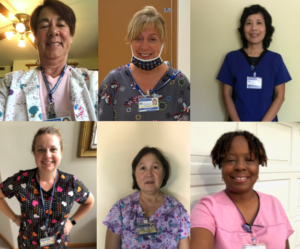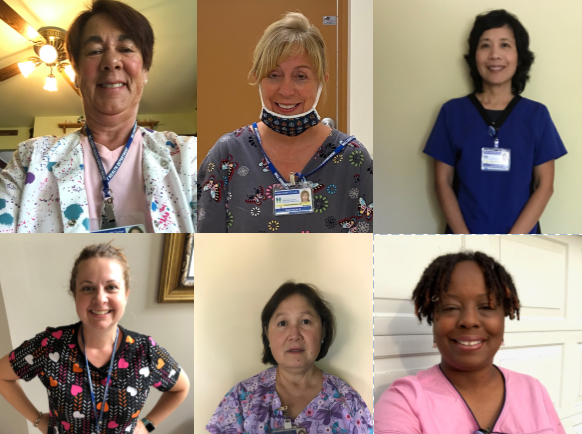When the Coronavirus pandemic first hit in early 2020, one of the biggest concerns for the WCHD (Will County Health Department) was how to continue performing their everyday services when they could often not see their clients face-to-face.
One such area was in WCHD’s Family Health Services division, where RNs (registered nurses) who usually offer guidance through various programs to pregnant women and those raising small children suddenly, in a time of extreme anxiety, found their advice was needed even more. In grant funded assistance programs such as High Risk Case Management, BBO (Better Birth Outcomes), and APORS (Adverse Pregnancy Outcome Reporting System), the reassuring voice over the phone became an RN’s most important asset.
“Although we are still not seeing anyone face-to-face, we are delivering high quality services in this time of need,” stated High Risk Case Management Coordinator Sylvia Muniz. “The relationships we build with pregnant women in our programs, along with adults in our programs raising children up to age 2, have even been stronger than usual because of the need for advice and comfort.”
The WCHD nurses providing these services are Nicole Collins, Eskrika Crosby, Lou Lamdagan, May Liang, Jodie Schweitzer, Brenda Burmeister, Eva Smolik, and Silvia Rangel. “These nurses are being texted all the time, well beyond work hours,” Muniz continued. “We are offering them extra eyes and ears that they are unable to get from a doctor’s office. We offer them our assessment skills, and they trust our instincts.”
In one such situation, a couple had tried to become pregnant for 14 years, and ended up having a high-risk pregnancy. The mom was very anxious about her history of diabetes and high blood pressure. But it was through the guidance of the BBO program that she was able to maintain contact, with texts and phone calls, on issues such as insulin therapy, when to seek medical care, and what signs and symptoms she should be aware of. At the end of the mom’s pregnancy, and nine months of comforting advice, a healthy baby girl was delivered without complications.

Nurses (Top, L to R) Jodie Schweitzer, Brenda Burmeister, May Liang, and (Bottom, L to R) Nicole Collins, Lou Lamdagan, and Eskrika Crosby (Eva Smolik and Silvia Rangel are not pictured) have been able to continue performing important services to pregnant women and those raising small children during the pandemic.
Other times, just one piece of advice at a key moment is what makes the difference. In a case from the APORS program prior to the pandemic, a WCHD RN was able to visit the home of baby living with foster parents for a three-month assessment. Just recently, the child had been sick and gone to the pediatrician. As it turned out, The WCHD nurse helped save this baby’s life with her assessment skills and rapport with the parents.
“Upon arrival, the baby was lethargic, retracting (using extra muscles to breathe) and was not acting his happy self,” recalled WCHD RN Nicole Collins. “After evaluating the baby, I encouraged the scared foster mom to go to the ER for further evaluation. The baby was admitted and transferred to a hospital with a higher level of care. He made a full recovery, and now is treated more aggressively with any respiratory symptoms. I am thankful to be part of a program that can give parents a little extra reassurance and support in their times of need.”
If you are experiencing a difficult pregnancy, or are raising a child between birth and 2 years of age with one or more medical conditions, please call 815-727-8505 for more on Will County Health Department Family Health Services programs.
For more on Will County Health Department services, please go to willcountyhealth.org.

